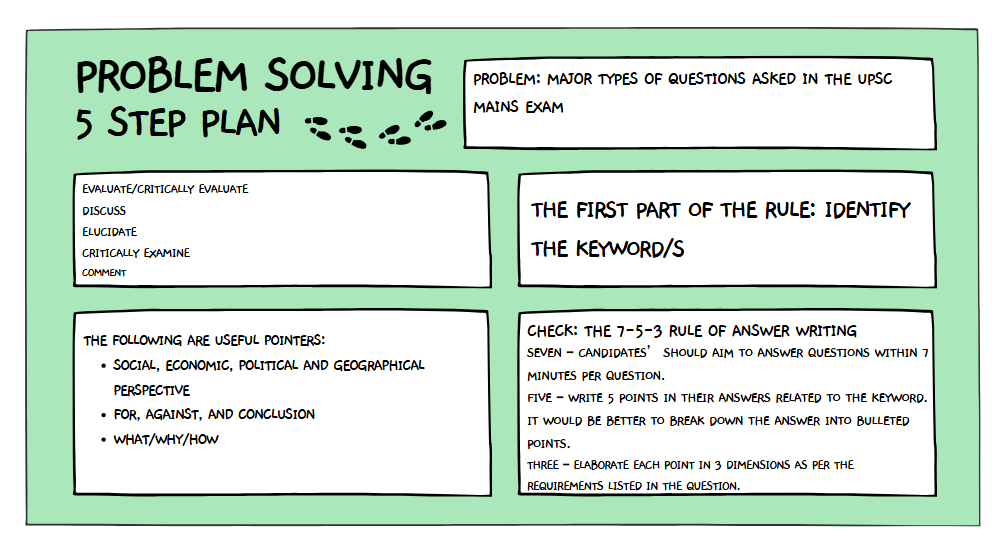“I would say it’s a waste of time. And I always discourage people unless they really want to be an administrator, they shouldn’t take the UPSC exam. Many of them after having gone through it, then they get frustrated through the course of their career. In the end, life in bureaucracy is not meant for everybody.
- Time-Consuming Process: Preparing for UPSC requires years of dedication, especially given the syllabus’s vastness and the competitive nature of the exams. Some aspirants spend 2–3 years or more, which can feel unproductive if they don’t clear the exams.
- Uncertain Outcome: Despite rigorous preparation, only a small fraction of candidates succeed due to limited vacancies. This can make the process seem unrewarding for those who do not make it.
- Career Risks: Many aspirants put their existing career, education, or other opportunities on hold, focusing solely on the exam. If unsuccessful, they may feel they’ve “wasted” precious years without tangible results.
- Misaligned Goals: If someone is preparing for UPSC without a clear understanding of why they want to join the civil services, they might later question whether the effort was worth it.
|Why UPSC Preparation Is Not a Waste|
- Personal Growth: Preparing for UPSC develops critical thinking, general knowledge, discipline, and problem-solving skills, which are beneficial for life and other careers.
- Backup Opportunities: Many aspirants who don’t succeed in UPSC transition into roles in academics, private sector jobs, or entrepreneurship, leveraging the knowledge gained during preparation.
- Social Impact: Those who clear UPSC contribute to society in meaningful ways, making the preparation worthwhile for those passionate about governance and public service.
|What Matters Most|
- Clarity of Purpose: Entering UPSC preparation without a clear goal or passion can make it feel like a waste of time. Reflect on why you’re pursuing it and ensure it’s aligned with your aspirations.
- Backup Plans: Always have a fallback career plan so that your efforts aren’t perceived as wasted, regardless of the outcome.
How to Avoid Burnout While Preparing for UPSC Civil Services Examination (CSE)?
Preparing for the UPSC Civil Services Examination (CSE) is demanding, but avoiding burnout is crucial for sustained performance. Here are strategies to maintain mental and physical well-being throughout your preparation|
- Plan Strategically
Realistic Schedule: Create a study plan that balances hard work and rest. Avoid overloading your day with unrealistic targets.
Break it Down: Divide the syllabus into manageable chunks and set weekly or monthly goals.
Flexibility: Adapt your plan if needed, but ensure consistency. - Prioritize Quality Over Quantity
Focused Study: Spend time on meaningful study sessions rather than long, unfocused hours.
Revision is Key: Allocate regular time for revision to avoid last-minute stress.
Practice Tests: Regular mock tests help track progress and boost confidence. - Incorporate Physical Activity
Exercise: Engage in 20-30 minutes of physical activity daily, like yoga, walking, or a workout. It boosts energy and reduces stress.
Stretch Breaks: Take 5–10-minute breaks to stretch and relax every hour during study sessions. - Manage Mental Health
Meditation and Mindfulness: Practice meditation to enhance focus and reduce anxiety.
Positive Self-Talk: Remind yourself of your goals and stay optimistic, even during tough times.
Seek Support: Talk to friends, family, or mentors if you feel overwhelmed. - Socialize and Take Breaks
Stay Connected: Interact with friends and family to refresh your mind.
Scheduled Breaks: Plan regular intervals for activities like watching a movie, reading for leisure, or pursuing a hobby. - Maintain a Healthy Diet
Balanced Meals: Include fruits, vegetables, proteins, and healthy fats in your diet.
Stay Hydrated: Drink plenty of water and avoid excessive caffeine or junk food.
Avoid Overeating: Heavy meals can make you sluggish during study hours. - Sleep Well
7–8 Hours of Sleep: Proper sleep is non-negotiable to recharge your brain.
Sleep Routine: Maintain consistent sleep and wake times, even during intense preparation phases. - Limit Comparisons
Avoid comparing your progress with others. Focus on your strategy and growth. - Use Productivity Tools
Pomodoro Technique: Study for 25 minutes, then take a 5-minute break. Repeat.
Apps and Timers: Use apps to track your study hours and stay disciplined. - Know When to Pause
If you feel mentally or physically exhausted, take a day or two off to recharge. Pushing through burnout often reduces productivity in the long run.

UPSC Civil Services IAS Pre / Forest Service IFS Recruitment 2025 Apply Online for 1129 Post | LINK TO FILL THE FORM
The key to scoring high is to perform intensive answer writing practice in a time-constrained setting. Candidates should also refer to the UPSC Syllabus from time to time. It would enable aspirants to increase speed and accuracy while deploying this method and guarantee success in UPSC examination. #TECHINFOGALLERY.COM
Relevant Links
NCERT Notes: History Of Ancient India Notes For UPSC 2022.
Medieval History of India [NCERT Notes] for UPSC Exam Preparation.
NCERT Notes: Modern Indian History Notes For UPSC.
NCERT Notes: Art, Literature, Architecture And Culture Notes For UPSC.
NCERT Notes: Geography Notes For UPSC 2022.
Economics Notes For UPSC – Indian Economy Notes For IAS Preparation.
Indian Polity Notes For UPSC – Polity Notes For IAS Preparation .
Environment And Ecology Notes For UPSC – Environment Notes For IAS Preparation.
Science & Technology Notes For UPSC – General Science Notes For IAS Preparation.
